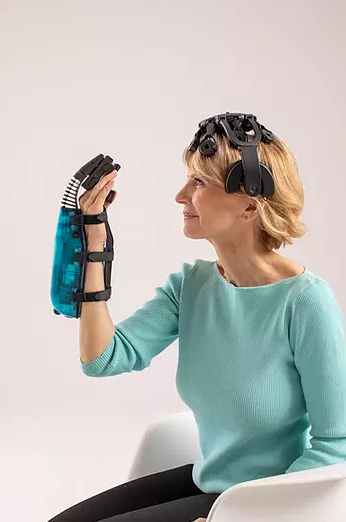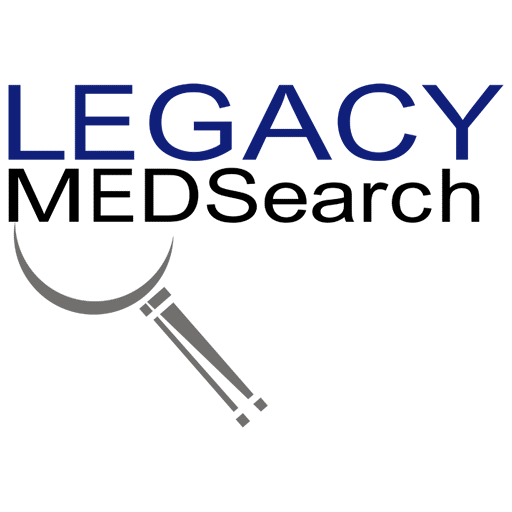Medical device and MedTech insights, news, tips and more
Neurolutions Receives FDA De Novo Market Authorization for IpsiHand Robotic Stroke Rehab System
May 9, 2021

Neurolutions, Inc., a medical device company developing and commercializing a first-of-its-kind device leveraging brain-computer interface (BCI) technology for upper extremity chronic stroke rehabilitation, announced today that the U.S. Food and Drug Administration (FDA) granted De Novo market authorization for its groundbreaking IpsiHand Upper Extremity Rehabilitation System. The IpsiHand System has been cleared for use in chronic stroke patients to facilitate muscle re-education through its novel BCI platform. In addition to the De Novo Authorization, the IpsiHand device notably received Breakthrough Device designation from the FDA as well. The Breakthrough designation is a process designed to expedite the development and review of devices that may provide for more effective treatment or diagnosis of life-threatening or irreversibly debilitating diseases or conditions. The Breakthrough designation may also streamline the process required for Medicare reimbursement.
“The approval of the IpsiHand System represents an important step forward in the care and rehabilitation of stroke patients,” said Leo Petrossian, PhD, CEO of Neurolutions. “For the first time, we are able to combine advanced robotics with brain computer interface technology to augment traditional stroke rehabilitation, allowing patients to improve upper extremity function after stroke.”
The Neurolutions IpsiHand System is designed for home or clinic use as part of prescribed rehabilitation therapy. IpsiHand includes a wearable robotic exoskeleton that is worn over the patient’s hand and wrist, a tablet computer, and an EEG-based biometric headset. The system translates brain signals from the uninjured, or ipsilateral, hemisphere of the brain, into movement of the exoskeleton. As a result, when the patient thinks about opening their hand, the device physically opens the patient’s impaired hand. This ability to physically open and close the patient’s hand based on the patient’s thoughts facilitates muscle reeducation, improving upper extremity rehabilitation. Developed by a team of innovators in Silicon Valley and neuroscientists from Washington University in St. Louis. the neuro-prosthetic and robotic capabilities of the IpsiHand System have been shown in clinical trials to provide both statistically and clinically significant outcomes for chronic stroke patients.
“The IpsiHand System represents the cutting-edge of medical technology and is the first FDA-authorized brain-computer interface for robotic rehabilitation,” said Kern Bhugra, Chief Operating Officer of Neurolutions. “This milestone would never have been possible without partnership with the FDA, who diligently worked with us to ensure we brought this benefit to patients.”
“Progress in improving rehabilitation outcomes for stroke patients has historically been challenging, but the market authorization of the IpsiHand System promises to usher in a bright future for our stroke patients and allows us to support their recovery throughout the rehabilitation process,” said Eric Leuthardt, MD, Chief Scientific Officer of Neurolutions and Chief of Division of Neurotechnology and Professor of Neurosurgery and Neuroscience at Washington University.
There are approximately 6 million stroke survivors living in the United States. Approximately 800,000 American adults experience a stroke each year, of which approximately 300,000 are left with upper extremity movement dysfunction. Muscular weakness or partial paralysis frequently persists into the chronic stage of stroke with 65% of chronic stroke patients reporting reduced motor function six months after stroke.
IpsiHand is indicated for use in patients 18 and older undergoing stroke rehabilitation to facilitate muscle re-education and for maintaining or increasing range of motion. All participants in an unblinded 40-patient study over 12-weeks demonstrated motor function improvement with the device over the trial. Adverse events reported included minor fatigue and discomfort and temporary skin redness.
Neurolutions intends to begin commercialization of the IpsiHand Upper Extremity Rehabilitation System in the U.S. later this year.
See Full Press Release at the Source: Neurolutions Receives U.S. Food and Drug Administration De Novo Market Authorization for IpsiHand™
Press Release by: Neurolutions
 Legacy MedSearch has more than 30 years of combined experience recruiting in the medical device industry. We pride ourselves on our professionalism and ability to communicate quickly and honestly with all parties in the hiring process. Our clients include both blue-chip companies and innovative startups within the MedTech space. Over the past 10 years, we have built one of the strongest networks of device professionals ranging from sales, marketing, research & , quality & regulatory, project management, field service, and clinical affairs.
Legacy MedSearch has more than 30 years of combined experience recruiting in the medical device industry. We pride ourselves on our professionalism and ability to communicate quickly and honestly with all parties in the hiring process. Our clients include both blue-chip companies and innovative startups within the MedTech space. Over the past 10 years, we have built one of the strongest networks of device professionals ranging from sales, marketing, research & , quality & regulatory, project management, field service, and clinical affairs.We offer a variety of different solutions for hiring managers depending on the scope and scale of each individual search. We craft a personalized solution for each client and position with a focus on attracting the best possible talent in the shortest possible time frame.
Are you hiring?
Contact us to discuss partnering with Legacy MedSearch on your position.
